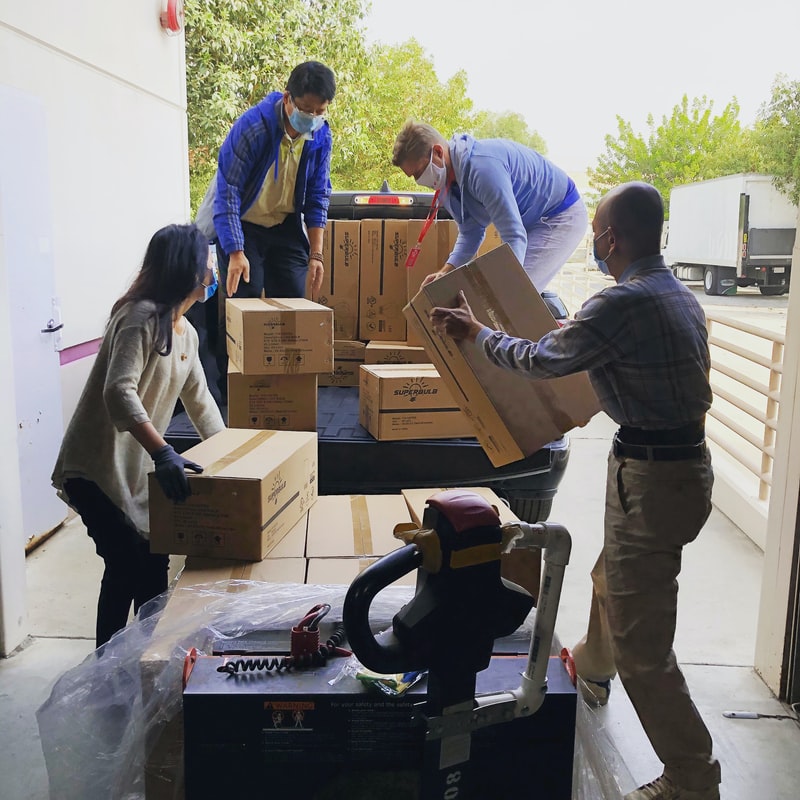Marvelous Moves: 5 Hacks To Make Your Next House Move Pain Free

Moving doesn’t have to be a headache, these 5 simple hacks will help make your next house move smooth, stress-free, and maybe even a little fun.
House moves rank somewhere between wisdom tooth extractions and tax audits on the list of experiences most humans would rather avoid. We’ve relocated eight times in the past decade, accumulating enough horror stories to fill a Stephen King novel and enough useful tricks to save your sanity during your next inevitable relocation disaster.
Last year, we watched our neighbors spend three months planning what they called a “smooth transition” to their new place, only to end up frantically stuffing belongings into garbage bags at midnight because they underestimated how much junk they’d accumulated. That same month, we helped another friend who needed to rent a storage unit in Albert Park because their truck broke down two hours from their destination, leaving them with a load of furniture and no backup plan.
Moving doesn’t have to destroy your weekend, your relationships, or your faith in humanity. These five strategies won’t eliminate all the stress, but they’ll prevent most of the disasters that turn ordinary relocations into expensive catastrophes.
1. The Three-Box Rule Saves Your Sanity
Every item you own falls into three categories: definitely keeping, definitely tossing, and the gray area that destroys productivity. That gray area is where good intentions go to die, so we developed a simple rule that cuts through the emotional attachment to random objects.
If you haven’t used something in eighteen months and can’t think of a specific reason you’ll need it within the next year, it goes. No exceptions for sentimental value, potential future utility, or the money you originally spent on it. We kept a bread maker for four moves because it seemed wasteful to donate a $200 appliance, despite using it exactly zero times in the eight years we owned it.
If you fear it’ll also take you eight years to finally let go of some of your unused things, try this trick: set a timer for each room and stick to rapid-fire decisions. Overthinking leads to keeping everything, which defeats the purpose of decluttering before a move. The goal isn’t perfection—it’s reduction. Better to accidentally donate something useful than to move boxes of forgotten junk that will sit unopened in your new place.
Start this process six weeks before moving day, not six hours. Last-minute decluttering always results in kept junk because you run out of time to make thoughtful decisions about what actually matters.
2. Professional Movers Are Worth Every Penny (When Chosen Correctly)
Hiring movers seems expensive… until you calculate the true cost of doing it yourself. Truck rental, fuel, packing supplies, and bribing friends with pizza adds up quickly (especially if that pizza comes with a side of wine or beer). Then you have to factor in your time, the potential for injury, and the stress of coordinating multiple inexperienced helpers who show up hungover and leave early.
Get quotes from at least three companies, but don’t automatically choose the cheapest option. We learned this lesson when bargain movers showed up two hours late with a truck that barely started and equipment held together with duct tape and optimism. They took seven hours to complete what should have been a four-hour job.
Check online reviews obsessively, but focus on recent feedback rather than overall ratings. Moving companies change ownership, staff, and service quality faster than social media platforms change their privacy policies. A company with stellar reviews from three years ago might be completely different today.
Book movers at least three weeks in advance, especially during summer months when everyone relocates simultaneously. Popular companies fill up quickly, leaving you with the bottom-tier options that make self-moving look appealing by comparison.
3. The Essential Box Strategy Prevents Day-One Disasters
Pack one clearly labeled box containing everything you’ll need during your first 24 hours in the new place. This box should be the last thing loaded, and the first thing unloaded, containing items like phone chargers, basic tools, toiletries, medications, and enough coffee to maintain basic human functioning.
We include toilet paper, hand soap, a shower curtain, and towels because nothing makes you question your life choices like being unable to shower after a day of moving boxes in summer heat. Add basic cleaning supplies because new places always benefit from a good clean (despite appearing spotless during inspections).
Include important documents like lease agreements, utility account numbers, and contact information for internet providers. Keep this essential box with you rather than trusting it to the moving truck. Murphy’s Law suggests this will be the one box that gets delayed, lost, or loaded onto the wrong vehicle if you don’t maintain personal custody.
4. Label Everything Like Your Future Self Is an Idiot
Vague box labels like “office stuff” or “miscellaneous items” seem adequate when you’re elbows-deep in packing. But they become useless when you’re desperately searching for a can opener three days later. Write detailed contents on at least two sides of each box using permanent markers that won’t smudge when boxes get wet.
Include the destination room and a brief description of contents. “Master bedroom—winter clothes and extra bedding” tells you more than “bedroom things” when you’re trying to prioritize which boxes to unpack first. We started numbering boxes and keeping a detailed inventory list after spending an entire weekend searching through identically labeled “office supplies” boxes to find one specific power cord.
Use colored tape or stickers to designate priority levels. Red tape means “unpack immediately,” yellow means “unpack within the first week,” and green means “unpack when you get around to it, possibly never.” This system prevents you from frantically opening every box searching for essential items.
Take photos of electronic setups before disconnecting cables. Your entertainment center might look simple as you’re pulling it apart, but remembering which cable connects to what becomes surprisingly difficult when you’re staring at a pile of identical black cords in your new living room.
5. Timing Is Everything, Especially With Utilities
Schedule utility connections for the day before you move, not the day you arrive. Nothing dampens the excitement of a new home like discovering you have no electricity, internet, or hot water after an exhausting day of relocating your entire life.
Internet installations often require technician visits that get scheduled weeks in advance. Book these appointments as soon as you sign your lease or close on your purchase. Working from home becomes impossible when your only internet access comes from expensive mobile data plans with frustrating speed limits.
Start the utility transfer process at least two weeks before moving day. Some providers require longer notice periods, especially in competitive markets where installation appointments fill up quickly. We once spent a week without internet because the previous tenant hadn’t properly canceled their service, creating administrative delays that nobody anticipated.
Don’t wait until moving week to sort out mail forwarding—we made that mistake once and spent three months chasing down a tax document that got sent to our old address. Most things can be done digitally these days, but this task is still worth doing just in case. The postal service needs about a week to get their act together, which feels like forever when you’re expecting important documents. We now file the forwarding request the same day we sign a lease because bureaucracy moves at its own glacial pace regardless of your timeline.
Here’s the brutal truth about moving: it’s going to cost more and take longer than you expect, even when you think you’ve planned for everything. But the difference between a moderately stressful move and a complete nightmare usually comes down to whether you started preparing early enough and had backup plans for when things went sideways. Which they will.







